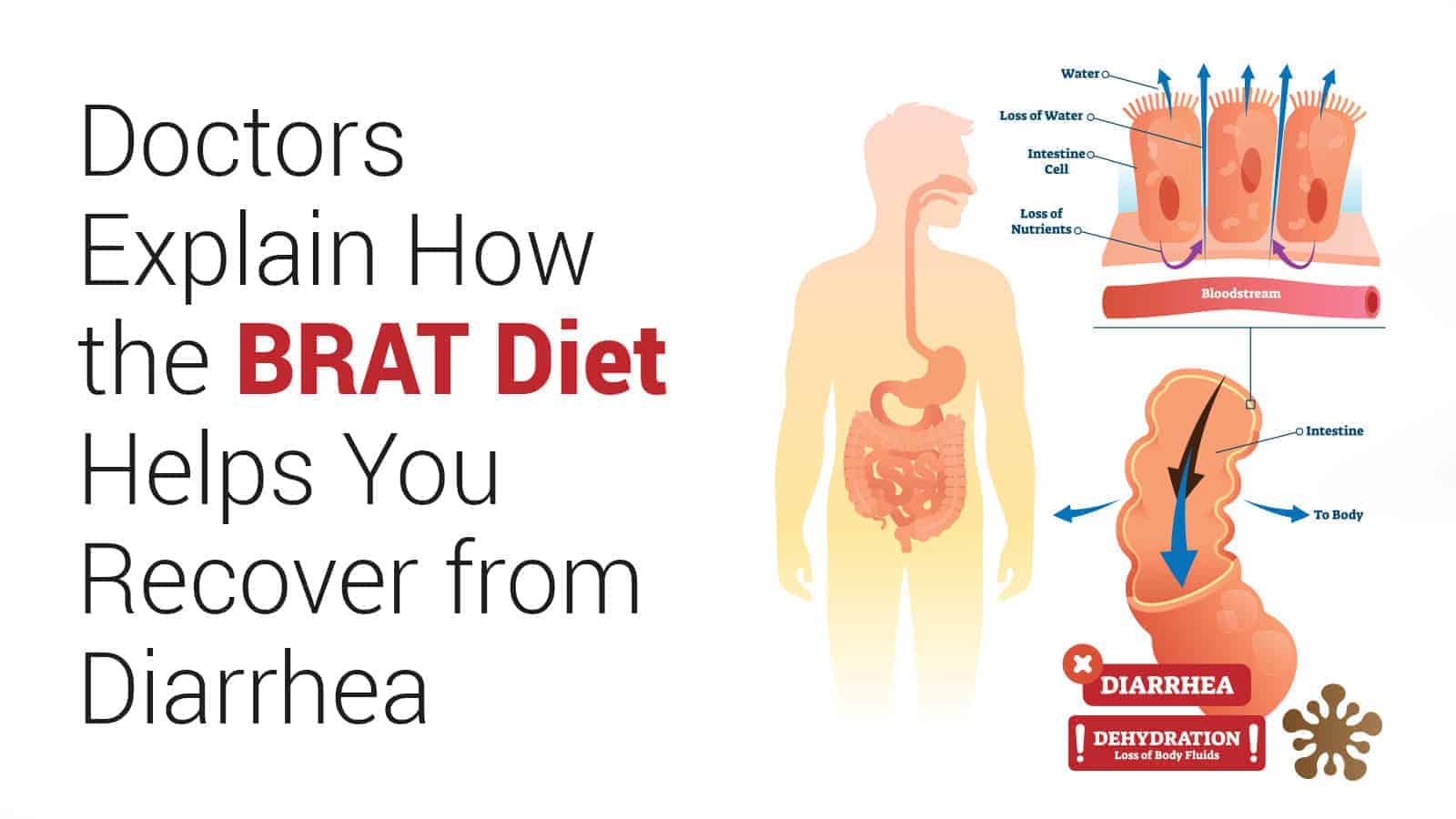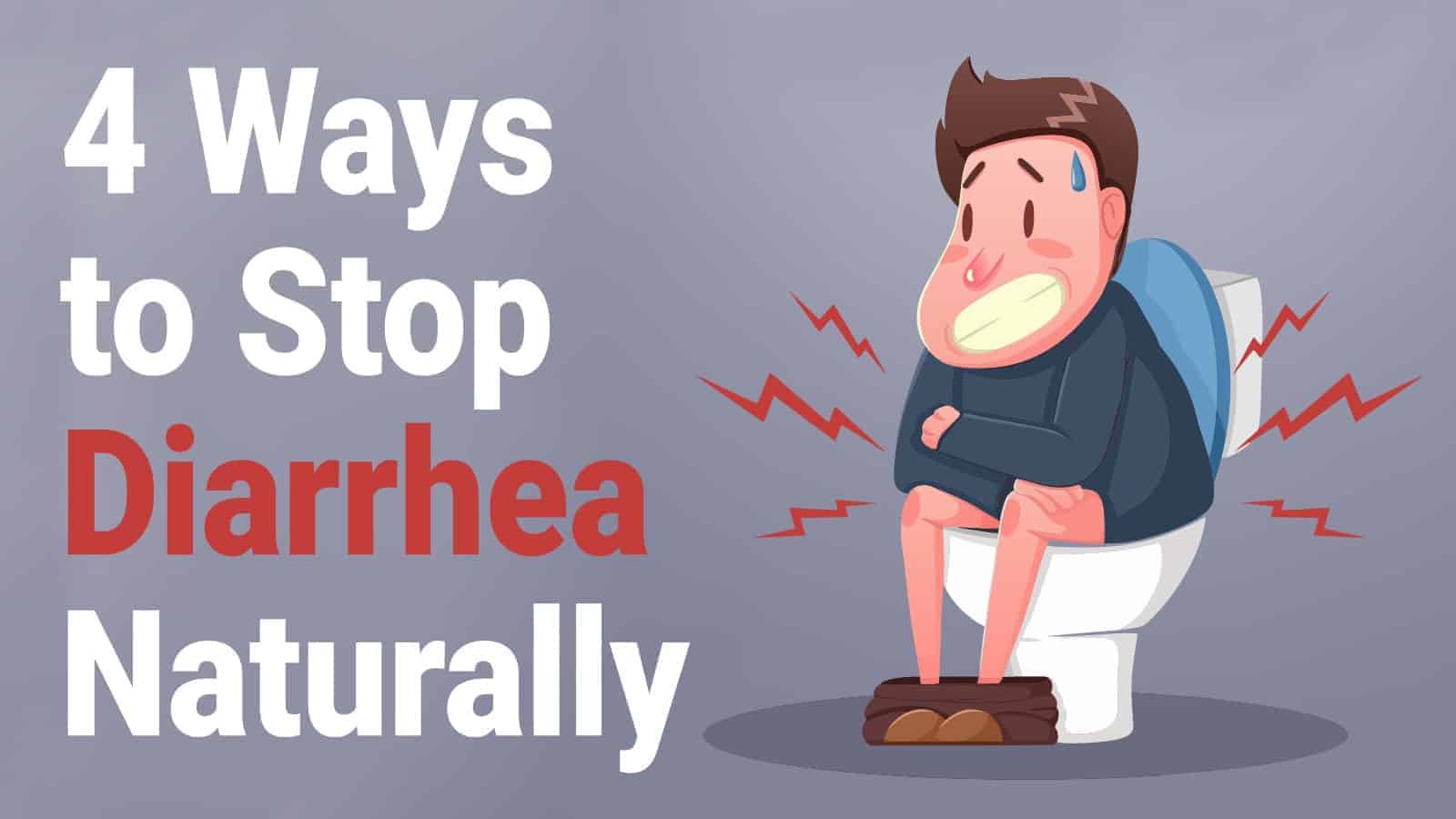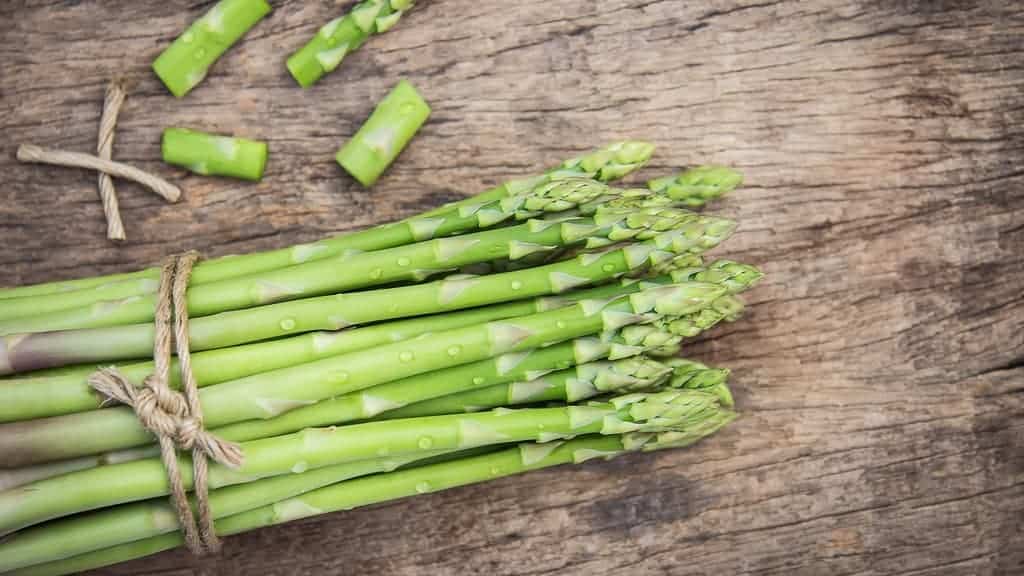Let’s be honest. Everybody gets diarrhea once in a while. It makes you feel washed out, exhausted, and dehydrated. Once you’re feeling better, you may wonder if it’s okay to eat regular food. Because some foods can make your symptoms return, doctors suggest the BRAT diet.
So, how does the BRAT diet help you recover from diarrhea, exactly? This article will explain the answer to that very often-asked question.
Yuck, diarrhea
Diarrhea is no fun. You get it from different things. If you have celiac disease or chronic pancreatitis, you’ll be prone to diarrhea. You can catch viral or bacterial diarrhea while traveling overseas, or from contact with someone who didn’t wash their hands properly. The stomach flu also causes diarrhea and vomiting. No matter how you get it, diarrhea is miserable.
Diarrhea symptoms include stomach pain, intestinal cramps, watery, smelly stools, and maybe uncontrollable gas. If you have a bloody stool, you should call your doctor. You may need testing to see if you have Shiga toxin. You can get infected by Shiga when you eat contaminated meat that’s not cooked correctly or even raw.
Foods to avoid when you have diarrhea
If you have diarrhea, the best thing to do is not to eat anything at all. But if you suffer from a chronic illness, you need to eat foods. But some foods make diarrhea worse, so skip eating them until you’re healed or feel better. Foods to avoid include:
- Alcohol or alcoholic drinks
- Coffee, hot chocolate
- Dairy foods like cheese, ice cream or milk
- Greasy fried foods
- Fruits like pears, watermelon, peaches
- Hot spicy foods
- Diet drinks
- Sugar-free candies
Doctors suggest the most important thing you can do when you have diarrhea is to stay hydrated. Getting dehydrated can cause serious problems. Diarrhea depletes your fluids and throws off your electrolyte balance. Electrolytes aid your nerves, and muscles function properly, balance your blood pressure, and restore damaged tissue. Replenish your fluids when you have diarrhea, drinking water, Gatorade or Pedialyte to replenish electrolytes plus hydrate you.
Recovering from diarrhea
Once you’ve gotten over diarrhea, you can begin to eat some foods. Don’t jump into eating regular foods too quickly. It could make your diarrhea return.
The BRAT diet
Studies found that the BRAT diet goes easy on your digestive tract. The BRAT diet is a bland diet that stands for bananas, white rice, apple sauce, and toast. These BRAT foods are easy to digest, low in fiber, not spicy, and go easy on your digestive system. They allow your body time to recover and don’t overwork your GI system. A bland diet is low in acid, so it firms up your stools and makes you have fewer bowel movements.
Why BRAT foods?
The BRAT diet is simply an acronym for the four foods on the list. It’s an easy way to remember what to eat when you’re recovering from diarrhea.
Bananas
Bananas have potassium, which is an essential mineral that replenishes your fluids.
White rice
Even if you know brown rice is healthier; under these circumstances, white rice is best. White rice doesn’t have as much fiber, You’re eating to recover from diarrhea, and you won’t be eating like this too long.
Applesauce
Applesauce is not only easy to digest but full of water, so it helps hydrate you.
Toast
Your grandma may have told you to eat tea and toast after you’re sick. She was right. White bread. when toasted, is easy on your gut.
As a side note, avoid taking aspirin or ibuprofen tablets when you’re recovering from diarrhea, because they can hurt your stomach lining.
Push Fluids When Recovering from a Stomach Bug
You need to continue to hydrate while you’re on the BRAT diet. It also helps your digestive system work better. Add these liquids to your list of safe drinks during and after diarrhea.
- Unsweetened seltzer water
- Weak, hot tea
- Diluted apple or grape juice
- Clear broth
- Sports drinks with electrolytes
Can I eat other soft foods?
Yes, you can eat other soft foods, but begin with the BRAT diet. Then as you continue to feel better, add other softer foods to your diet, such as the following offerings:
- Eggs
- Pudding and custard
- Cream of wheat
- Tofu
- Lean meats like skinless chicken or fish
- Tofu
- Non-citrus fruit juices
- Oatmeal, pasta
- Herbal teas
- Almond milk or cashew milk.
Take probiotics
It’s essential to take probiotics while recovering from diarrhea. Probiotics help your gut get back the proper balance of good bacteria that gets lost when you have diarrhea or vomiting. Probiotics come as supplements that come in pill or powder form. They contain live bacteria, which boosts your GI tract function and health. Usually, you don’t want to eat dairy products when you’re recovering from diarrhea, except for those that contain probiotics like kefir, yogurt, or fermented drinks.
How long should I stay on the BRAT diet?
So, how long should you stay on this diet? The BRAT diet is an excellent way to ease into eating while you’re recovering from diarrhea, but it doesn’t give you all the vitamins and minerals to be your healthiest.
Stay on the BRAT diet for a short time, around 24 to 48 hours, but no longer. Staying on the BRAT diet too longer prevents your body from fully recovering from diarrhea or stomach flu.
The BRAT diet is your first step into eating foods. After this, you’ll need to add other foods with a little more fiber to your diet. If you go without fiber for too long, it can cause health problems. High-fiber foods lower your bad cholesterol, stabilizes your blood sugar, helps your gut get back to normal, and helps you manage your weight.
If you continue to have diarrhea, contact your doctor. You may need some tests to find out what’s going on in your gut.
Does the BRAT diet work?
Even though the BRAT diet has been used for many years, some people point out that relatively few studies to prove its effectiveness.
However, anecdotal evidence suggests that it seems like a logical first step when recovering from diarrhea. Plus, the acronym makes it easy to remember what to eat.
It’s crucial you know that studies have only been done on bland diets in general, but not specifically the BRAT diet. It does relieve your symptoms of diarrhea and vomiting but must be short-lived. Today, not all doctors recommend it. Instead, they recommend eating a bland diet for a day or two. This increases the types of foods you can eat and still gives your stomach a break.
Besides the BRAT diet, you can safely eat these soft foods while you’re recovering from diarrhea.
- Boiled potatoes
- Brothy soups like chicken noodle
- Saltines
- Unflavored rice cakes
- Pasta
- Salted pretzels
- Noodles that aren’t spicy
Stay on the BRAT diet, no longer than two days, then begin to add foods to your menu with a little more fiber.
Here are some meal ideas you can try as you gradually begin to eat more fiber to your diet.
Breakfast:
Try adding a slice of whole wheat bread to eat with your scrambled eggs.
Lunch:
Eat a bowl of vegetable soup. On the side, have a bowl of canned peaches and a whole wheat roll without butter.
Dinner:
If you feel up for it, try a small salad of romaine lettuce without dressing—chicken without the skin, and grilled or roasted zucchini.
If after eating more fibrous foods, diarrhea or vomiting returns, back off, and go back to a bland diet. Call your doctor if your diarrhea lasts more than two to three days. You may have an infection, and you must seek professional advice to avoid dehydration.
Final Thoughts on Consuming the BRAT Diet as You Recover from Diarrhea
Is the BRAT diet the only way to go when recovering from diarrhea? Not necessarily. All the foods on the BRAT diet are soft and easy to digest. Eating these foods is a helpful first step to recovering from diarrhea.
But because the BRAT diet hasn’t been extensively studied, doctors are sometimes hesitant to tell you to eat only this diet. Your doctor will give you a list of bland foods, which, of course, includes the four items on the BRAT diet. The point is to stay on this diet for a short time, a day or so, then move onto foods with a little more fiber.
This way, you’ll give your stomach a break without limiting the nutrition your body needs to fully recover from the stomach flu, vomiting, or diarrhea. Who knows, research on the BRAT diet may be around the corner but in the meantime, if you have diarrhea, stick with the BRAT diet for a bit after you recover.























